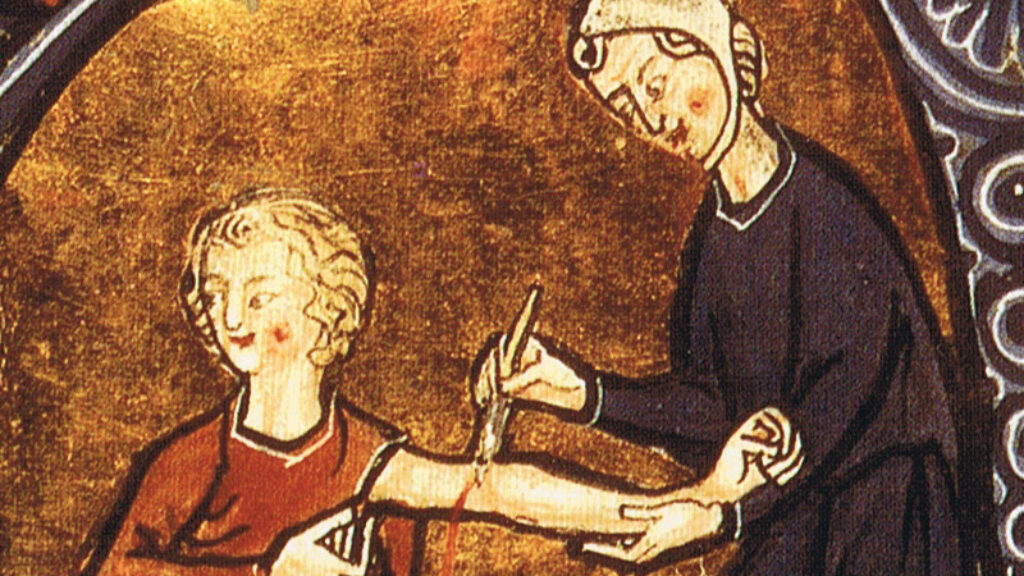Max, Moritz, and Marx
In the 1970s, the two main associations of Hegel studies, both based in West Germany, were split along the “right-left” lines that had existed in one form or another since the 19th century. The conservative Hegelians were more interested in Hegelian metaphysics, while the “left-Hegelians” focused on the master’s political and social philosophy, and included members from communist countries. In 1974, the Institute of Philosophy of the Soviet Academy of Science invited the “left-Hegelians” to hold their congress in Moscow for the first time, and I was, rather daringly, invited to give a talk on Marx’s criticism of Hegel’s political philosophy.
Since there were no diplomatic relations between Israel and the Soviet Union, the organizers in Moscow told me to send my Israeli passport to the Soviet embassy in Bonn, which would be authorized to issue me a visa. It took a while but eventually it worked, though I had to pay an exorbitant sum to Intourist for the hotel reservation. Since we were guests of the Soviet Academy all participants from the West had to fly via East Berlin on the East German airline Interflug.

I brought two books with me to Moscow. The first was my Hebrew translation of the Early Writings of Karl Marx (published by the Hashomer Hatzair publishing house Sifriat Poalim), which I planned to present to my hosts at the Soviet Institute of Philosophy; the second was a siddur, which, like other Jewish visitors to the Soviet Union at the time, I would try to leave at the Moscow synagogue when I visited it on Shabbat.
Before leaving Jerusalem, my Hebrew University colleague the great Yiddishist professor Khone Shmeruk asked if I would do him a bibliographical favor. He was working on a study of various Yiddish translations of the classic illustrated German children’s book Max und Moritz by Wilhelm Busch. He had discovered that there had been a Yiddish translation published in Kiev in the early 1920s, when the Soviet regime was encouraging Yiddish literature. Could I try to get a photocopy of this edition from the Lenin Library in Moscow? I was not at all sure that I could, but I promised to try.
We arrived at Moscow Sheremetyevo Airport after 3 a.m.: The grayness and dilapidation of the arrivals hall spoke volumes. A special representative of the Soviet Academy was waiting to whisk us through passport and customs control. It all seemed relatively efficient—until the uniformed customs official saw my Israeli passport. Everyone else was passed through customs, while I was asked to wait.
Eventually someone who looked like a more senior official appeared. He was wearing civilian clothes, and his English was quite good. He looked carefully at my passport, official invitation letter, currency declaration, hotel reservation slip, and visa; then he very courteously welcomed me to Moscow. For the next half hour we went through every item in my suitcase. Again, very courteously, he asked me about the two Hebrew books. I started with the siddur, explained that it was a standard Jewish prayer book, and after making sure there were no secret messages hidden among its pages, he said to me, “That’s OK,” which was a great relief. When he asked me about the second book I said rather nonchalantly that this was my Hebrew translation of Karl Marx’s Early Writings, which I was going to give to my hosts at the Institute of Philosophy. When he looked puzzled, I turned to the English title on the verso of the title page, which said “Karl Marx: Early Writings, translated with an Introduction by Shlomo Avineri.” To my great surprise the official asked me to wait, took the book with him, and disappeared into a back office. After what appeared to me an eternity—I saw all other members of the delegation waiting for me behind the glass barrier—the official returned, telling me that to his regret I could not bring the book into the Soviet Union.
Mildly, I suggested that there must be some misunderstanding. The book was, after all, a translation of Karl Marx. If they allowed me a Jewish prayer book—for which I was grateful—how could a book by Marx be banned? “Let me level with you,” the official said in quite idiomatic English. “Hebrew books published in Israel are banned, except prayer books.” Given the official’s cordiality I allowed myself a somewhat mischievous suggestion: Perhaps the Marx volume could also be classified as a religious text? The official smiled pleasantly, said he didn’t think so, but went again to the back office. When he returned he said that since this was a very unusual case, they would not simply confiscate the book. Instead, I could leave the book at the airport and claim it when I departed. On a bad carbon duplicate form he filled out a receipt for the book. I made sure to have him write in the full title, including the name of the author.
After almost an hour I was allowed through customs, to the great relief not only of myself but of all other members of our delegation and the official welcoming colleague from the Institute of Philosophy. When they anxiously asked me what the problem had been, I said that I had no problem; it was just that Karl Marx had been barred from entering the Soviet Union.
During the conference each of the foreign speakers was allotted a research student who would serve as a guide, but also, naturally, a spy of sorts, who could report anything unusual to what in the Soviet Union they used to call “the competent authorities.” I was assigned a pleasant young female student. When I complimented her on her excellent, unaccented English, she told me that her father was a high-ranking diplomat who had served in the West, where she attended international schools. In fact, he turned out to be the Soviet deputy foreign minister. She was quite curious about Israel and its people, and we had several interesting conversations, though we avoided discussing Soviet policies in the Middle East.
Since the conference was going smoothly and my young guide was friendly and intelligent, after some hesitation, I decided to ask her for help with Khone’s request. I told her about the famous adventures and boyish hijinks of Max und Moritz, and gave her the details Khone had given me about the 1920s Yiddish Kiev edition. Graciously, she said she would try. I was skeptical, but the next day she took the morning off from monitoring me and returned in the afternoon, beaming. She had photocopied the entire book, with the iconic drawings from the original German edition, and the title page stamped with the logo of the Lenin Library. In thanking her, I asked how difficult it had been to get the copies. She said that it had been easy to locate the book (she knew a librarian who was Jewish and could read Yiddish), but then she ran up against the usual bureaucratic hurdles. Photocopying the book would require a special permit; she would have to file an application and the process would take a few days, if not more. Her argument that I had to leave the next day didn’t change anything. It was at this point that she decided to call her father at the foreign ministry. The deputy foreign minister agreed to talk to the chief librarian and told him that this was a “matter of state”—permission granted.
I did not reclaim my Marx translation when I left Moscow. Perhaps it is still there, somewhere in an airport customs storage room. The photocopy of the Soviet Yiddish translation of Max und Moritz is now at the National and University Library in Jerusalem. As the old Latin phrase goes, habent sua fata libelli, books have their fates.
Suggested Reading

To Whom It May Concern: Mordecai Kaplan the Diarist
The father of Reconstructionist Judaism left behind a towering legacy, and seventy-seven years of personal Journals—a tightly scrawled window into his mind.

No Balm
A new book on talmudic medicine illustrates the ills of modern academia, argues Shai Secunda.
A Conversation with Leon Wieseltier
Abraham Socher and Leon Wieseltier talk about the responsibilities of Jewish intellectuals, standing on the shoulders of (and tearing down) giants, and crying cookies.
Crowds and Converts: A Response to Abraham Socher
Tal Keinan has written an interesting response to Abe Socher’s review of his book, which takes the conversation in a new direction.
Comments
You must log in to comment Log In